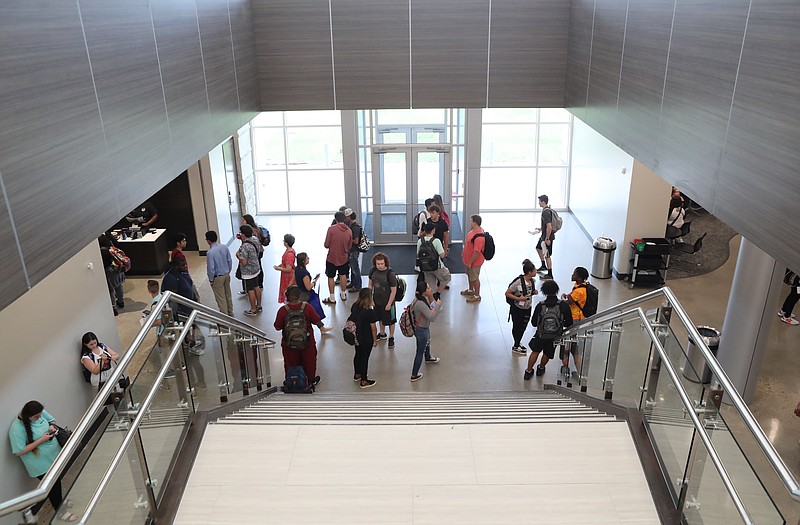The National Park College Board of Trustees approved the curriculum for the college's first bachelor's degree Wednesday during its regular monthly meeting, in which students may now earn a Bachelor of Science in Nursing.
The board approved a resolution in August to investigate the feasibility of offering bachelor's degrees and, last month, the Curriculum and Assessment Committee approved an RN-to-BSN program following its research and development by the NPC Nursing Division.
Wade Derden, NPC vice president for academic affairs, said the RN-to-BSN pathway will allow those who have received, or currently have, an RN license to come back and receive their Bachelor of Science in Nursing.
"This is a really important step for the college," he said. "With your approval, we will still have several hurdles ahead of us. Your approval basically allows us to submit these materials to the Arkansas Division of Higher Education, hopefully by February."
Derden said they plan on it being a web-enhanced program, with coursework on campus as well as online to add flexibility.
NPC President John Hogan, noting the significance of the degree's approval, said it is the "baseline for what is needed in our health care community." Health care is the No. 1 industry, per capita, in Garland County.
"The bachelor's prepare nurses (in) meeting a standard, because the patient care standards are higher when a bachelor's-prepared nurse delivers that care," he said. "Today the step that you took will enable us to make the next steps in the process."
NPC board Chair Forrest Spicher thanked Janice Ivers, NPC dean of nursing and health sciences, for her hard work.
"It's going to be a game-changer, I'm confident, in this community and beyond. Not only in the lives of the students, the nurses, but the people that receive their care," he said.
Director of Academic Services Yolanda Cox reported on the successes of the National Park University Center, noting NPC is often a student's first step on their path to a bachelor's degree. The university center, she said, is designed to help students make that transfer into a four-year college or university. The first NPUC degrees were offered in the fall of 2016.
"Through these degrees, we have been able to provide numerous transfer opportunities to our students throughout the state of Arkansas," she said. "And each transfer degree allows our students to complete their first two years with us and then transfer seamlessly into the university program with zero loss of credit."
NPC has 533 students enrolled in University Center transfer degrees for the fall 2021 semester, 28% of the credit student population. It currently offers 81 articulated degree pathways to 13 university partners across Arkansas. Degrees with the highest enrollment include business, education, psychology, social work and biology -- pre-health. Students enrolled in the programs have options between online, on-campus and hybrid course formats.
Cox said University Center students are succeeding at a much higher rate than the average Arkansas university student. According to the Arkansas Division of Higher Education, the average on-time completion rate for students attending an Arkansas four-year university is 39%. NPUC students' on-time completion rate is currently 50%, topping the state average. Only two of NPC's partner institutions have higher rates, the University of Arkansas at 53% and Harding University at 60%.
"Providing a transfer pathway of this quality is significant work," Hogan said. "Our students complete courses at NPC without losing credit when transferring to a university and are guaranteed to land on the partnering campus as a junior."
Spicher said that through the university center, they are increasing the number of bachelor's degree completions staying in the Hot Springs area, which "just raises the level of competency and vibrancy, I think, in our community."
"And we're also able to keep more talented people in our community," he said.
One of the college's focuses recently has been its workforce development. Spicher, referring to the workforce deficit, said "it doesn't matter whether you're an accountant or a welder; it's everything in between and even beyond that."
"All of that comes under the category of the workforce deficit. So many people falling out of the labor force. I don't know how many people that I've talked to that say, 'I'm trying to hire good people but they're just not ... they're not coming around.' And so the work that you're doing is going to help solve that deficit, so keep up the good work," he said.
